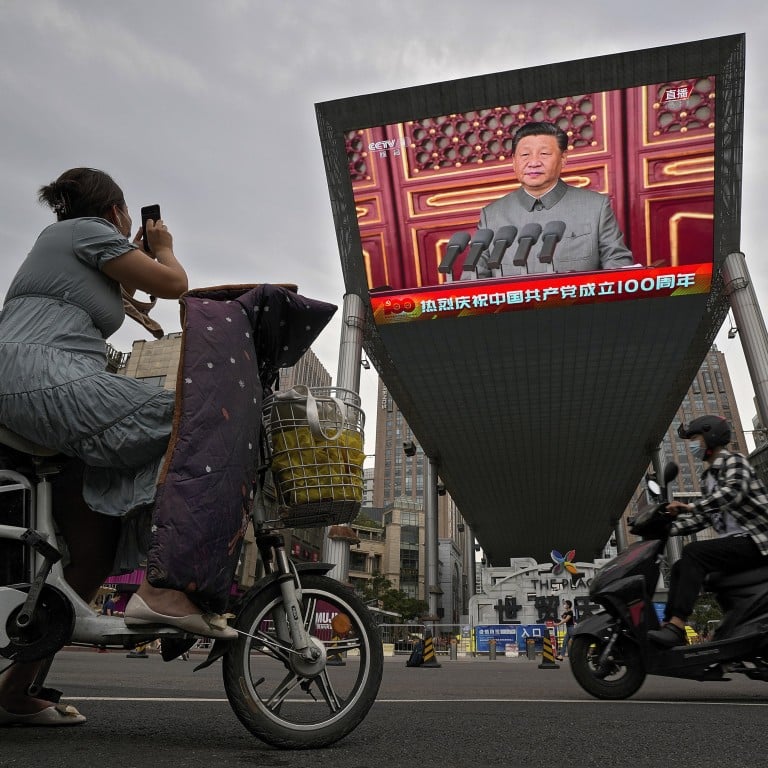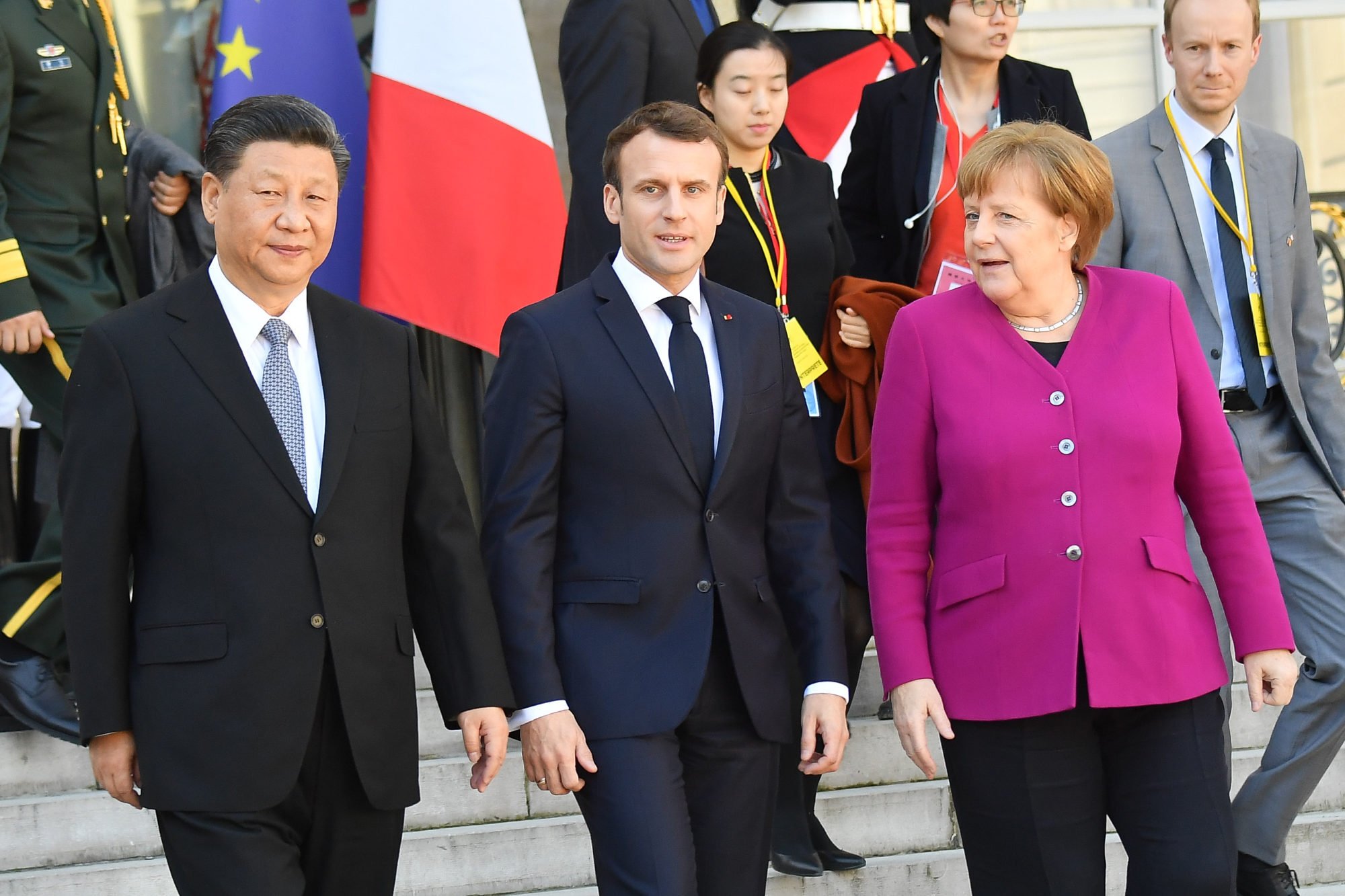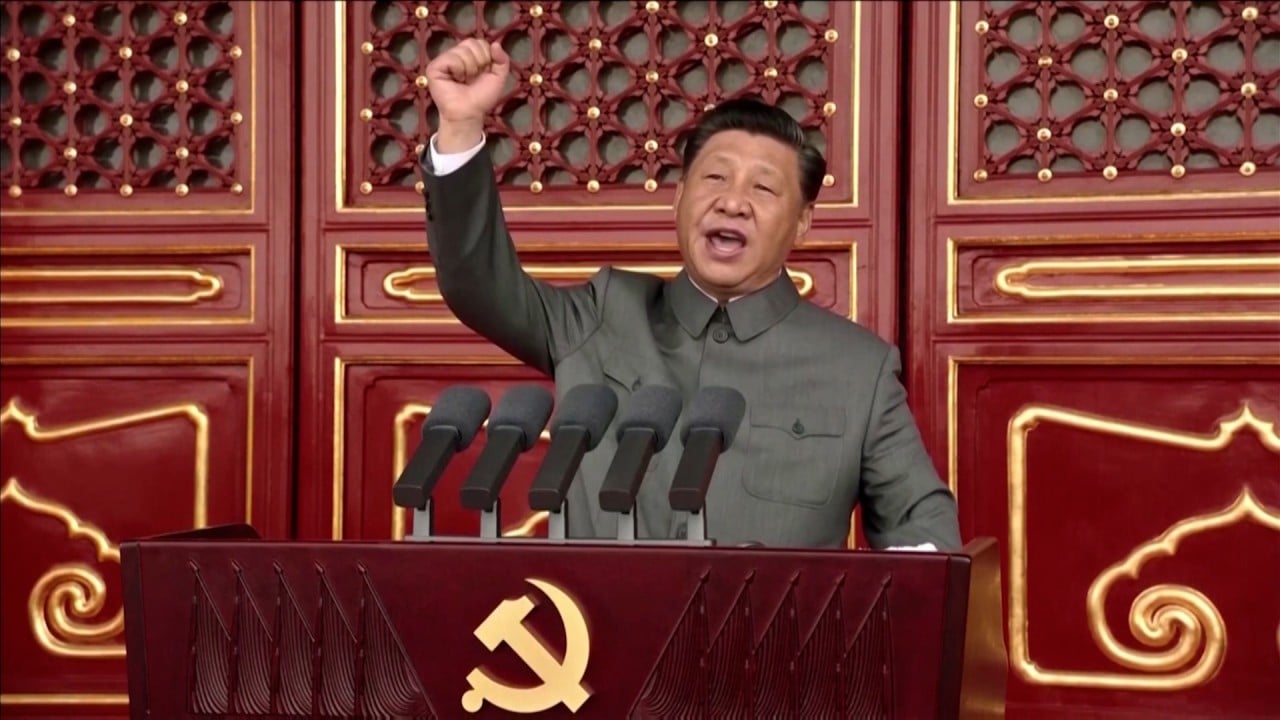
China as gentle giant would win more hearts than wolf warrior diplomacy
- For many Chinese, Xi Jinping’s stern warning to foreign powers on the centenary of the Communist Party was a sign of strength and resolve
- But it would not have gone down well with the rest of the world, at a time when many are already wary of China’s rapid rise
The threatening words were ostensibly aimed at the United States and its allies, but also very much intended for the ears of the domestic audience.
For many Chinese, Xi’s stern tone was a sign of China’s confidence, strength and resolve. But I doubt it went down well with people beyond China’s borders.
And it certainly didn’t help soften China’s image in the world, at a time when many are already wary or fearful of the country’s rapid rise.
The results shouldn’t have come as a surprise. China’s global image has worsened in recent years, and especially since the pandemic struck.
However, within China, not only leaders but also ordinary people are convinced that the West – the United States in particular – intends to contain China and that the country is being unfairly punished for its growing economic and military might.
Real-life wolf warriors – Chinese diplomats – have aggressively fended off criticism and in some cases even launched counter-attacks, which are not always backed by solid evidence.
This represents a sharp departure from the diplomatic principle in the Deng Xiaoping era, tao guang yang hui or “hide our capacities and bide our time”.
The wolf warriors’ combative approach is poorly regarded. Some believe it has tarnished China’s reputation.
Although Xi did not make his remarks in a diplomatic context, such a high-profile speech was bound to have a far-reaching international effect.
How can China defend itself without weakening its soft power? It is a major challenge. No one is suggesting that it should put up with all the criticism thrown at it, but I’d think that a calm and measured response may prove more effective than angry tit-for-tat.
Inevitably China’s rise will be accompanied by disagreement, conflict and criticism. The country can demonstrate its growing confidence by becoming more receptive to constructive criticism. Instead of being aggressively defensive, it could seek rapprochement.
No matter how strong and powerful it has become, China needs to cooperate economically with other countries, including the developed nations whose citizens see China in a negative light.
China is poised to play a leading role in the post-pandemic world, and a more conciliatory approach would bring benefits, both to China and its critics.

During a stand-off between nations, the one who first tries to reconcile the conflict often wins respect and makes gains by taking the moral high ground.
The Chinese classic The Art of War is actually about the art of avoiding war. Sun Tzu enjoins people to avoid war whenever possible because it is far too costly compared to diplomacy.
He also advises military leaders not to show off their troops’ strength. Indeed, The Art of War disdains macho displays.
Lijia Zhang is a rocket-factory worker turned social commentator, and the author of a novel, Lotus


